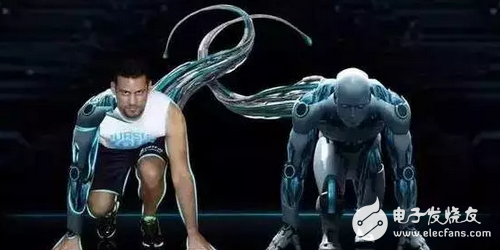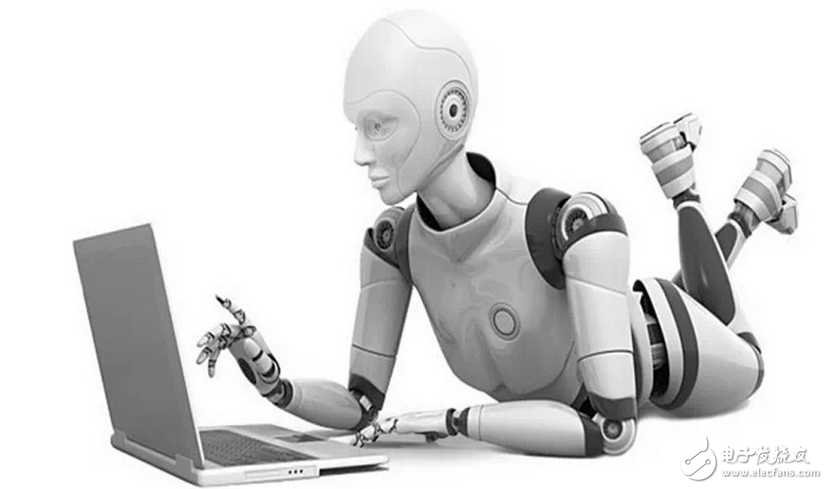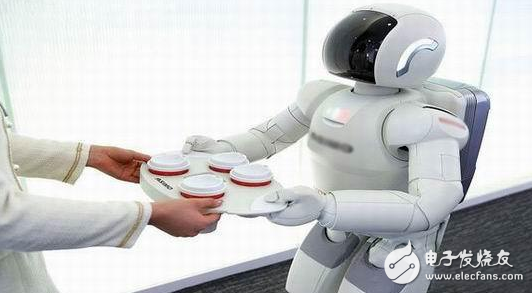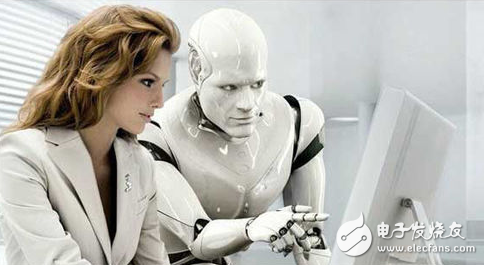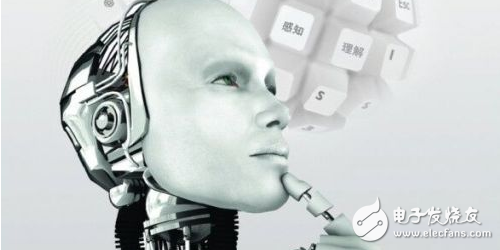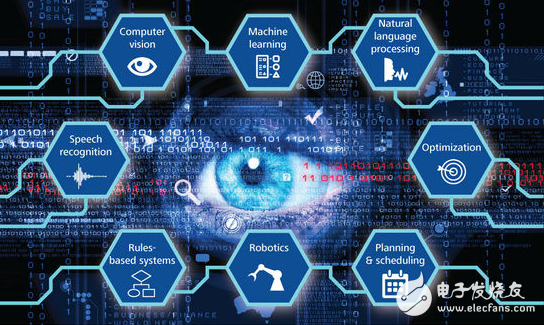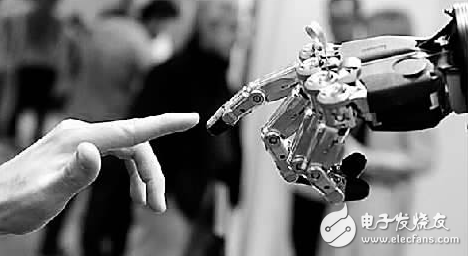The extraordinary performance of artificial intelligence in various industries has established its indispensable position in the future world. For example, manufacturing, healthcare, construction, online retailing and other industries are using artificial intelligence technology to integrate into the Internet of Things. Evolving machine learning technology has made it possible for every enterprise to become a data-driven enterprise, using the machine learning technology of the cloud platform to use artificial intelligence applications. Future companies will not have to install and maintain machine learning systems, analyze massive and complex data at a low cost, and ultimately make detailed and accurate analysis and predictions. The machine learning industry reflects three recent trends: Data Flywheels, Algorithm Economy, and Cloud Hosted Intelligence. In the future, every application will use open source algorithms and machine learning code to become intelligent applications. What changes will these trends bring to the digital industry such as cloud industry and data processing? Data will be the determining factor in the digital world of the future. The world's data doubles every 18 months, while the data storage costs in the same period are almost halved, which means that more data will be available in a few years. The vast amount of data available will help with better and broader machine learning experiments and deployments. As machine learning services improve, people can get more refined data, and eventually the number of users of machine learning services will grow, which in turn will generate more data. This data flywheel will never stop and expand. For example, Tesla will release a driverless car by the end of 2018. Tesla has collected 780 million miles of driving data for the project, and this data is still growing at a rate of 1 million miles every 10 hours. Growth, this is the power of the data flywheel. The decline in the cost of massive data collection will greatly encourage people to use cloud platform technology, and the market for machine learning algorithms will be good in the next few years. If you have a lot of data but can't manipulate the data or use the data to generate useful ideas, what is the use of the data? This requires an algorithm, and a large amount of data will give birth to the economics of the algorithm. Engineers, data scientists, data organizations, etc. will share algorithms to extract the required set of information from the data. Enterprise managers in various industries can directly analyze the enterprise problems by sending data to the algorithm platform. They can also purchase algorithms for data research, algorithms for managing data and analyzing data. In other words, every application and business will be possible to achieve intelligence. If the business encounters the problem of having to create an AI specifically for it, it will inevitably cost the people. Obviously we can now turn to machine learning service providers, but the way we solve this problem in the future will change dramatically. We will use cloud-hosted artificial intelligence technologies such as deep learning, Google's machine learning platform, etc. This is also the most distinctive machine learning trend of the moment. In this way, enterprises will no longer need to deploy AI separately for their business, and the cost will be greatly reduced. Analytical and data science will also be easier to operate. With the help of cloud-based artificial intelligence, we will hope to obtain more accurate calculation results, faster data mining, and generate new business models. In the Internet of Things, the Internet of Things has brought commercial value to the manufacturing industry, such as remote asset monitoring, logistics, supply chain, and predictive maintenance. The application of robots in automated production best illustrates the broad prospects of AI in manufacturing. Artificial intelligence has begun to assemble products and package goods, which indicates that a highly robotic industry is taking shape. The current state of AI technology that requires human help and monitoring will also change. Healthcare is the industry most affected by artificial intelligence. IT companies have long begun to develop artificial intelligence applications that can track employee health information or health information for older people. The future of artificial intelligence in the healthcare field is immeasurable. Many medical organizations have deployed IBM Watson to help doctors provide the most comprehensive care for patients. This is just the current application scenario for cognitive computing, and will be more widely deployed in the future. In the coming era of artificial intelligence, people will provide more timely and higher quality medical services by mining medical record data. One of the most promising projects in the field is Google's DeepMind Health Project. Google AI research institutes have collected and standardized medical data and explored data lineage. The project is currently in its infancy and will be used in the future to help London Moore Eye Hospital improve eye treatment. Following the pace of IBM Watson and Google DeepMind, Microsoft, Dell and Hewlett-Packard have entered the healthcare industry. Some analysts predict that by the end of 2018, 30% of suppliers will perform cognitive calculations based on patient data. As an important part of the Industry 4.0 era, artificial intelligence will continue to change the world. The construction industry will also benefit from automated deployments. For example, AI can significantly reduce costs by optimizing raw material costs and selecting engineering companies. Automated TMA (vehicle attenuator) trucks are a compelling example of artificial intelligence applications in the construction industry. This type of truck can work efficiently without a driver. In case of danger, the driver can leave the truck to ensure his safety. The TMA technology is equipped with an electromechanical system and a fully integrated sensor kit that determines the main and secondary trucks. This type of truck is currently used in road construction projects, and its application scenarios will change in the future. The past 3-D or 4-D building information model will soon be replaced by the next generation of 5-D Building Information Model (BIM). The functional and physical characteristics of the architectural project will be presented in five dimensions. Geometric specifications, aesthetics, thermal characteristics and acoustic properties allow the AI ​​to calculate the final cost and construction schedule. Many companies have adopted this model. In the future, this application will be integrated with augmented reality technology through wearable devices. The combination of 5-D BIM and augmented reality devices will transform the entire building industry. People will be able to see holograms of physical entities through holographic stereoscopic displays, as well as interact with data through gestures and sound manipulation. Virtual reality is currently the most popular artificial intelligence application in the retail industry. Virtual reality headsets are sometimes available in stores, where people can see what the product looks like and make it easier to select products. However, chatbots are the future of retail AI. E-commerce is the most dynamic retail platform. The introduction of chat bots will transform e-commerce into conversational commerce, enabling business owners to provide customers with a personalized shopping experience, which will certainly build a stronger customer base. The development of chat bots has started, and all online retail businesses should put this technology on the agenda. Galanz Microwave Oven Panel Membrane Switch
Microwave steam can be used in all kinds of food, the microwave oven before use the switch is the rotary switch, no food set, only by rotating for temperature adjustment, some people think that is very convenient, but the time is progressive, meet now microwave Membrane Switch, you will know a rotary switch is already obsolete. There are different patterns and different temperatures set on the membrane switch. The pattern is usually the pattern of food, so the pattern can be selected according to the different steamed food, and each pattern is also involved in the temperature, so as long as the pattern is selected, the temperature can be directly regulated systematically. Automated products bring more convenience to people, and the temperature and time can be displayed autonomously on the membrane switch.
Galanz Microwave Oven Panel Membrane Switch,Balances Membrane Switch,Analytical Balances Membrane Switch,Gloss Surface Membrane Keypad Dongguan Nanhuang Industry Co., Ltd , https://www.soushine-nanhuang.com